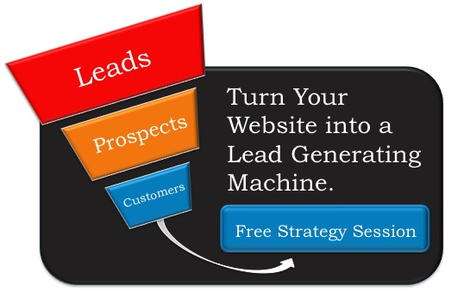
You may think that because inbound marketing has been around for a while now that it probably isn't a field of study anymore. Everyone knows everything about inbound marketing right? Actually, there's still a lot that's misunderstood or unknown about inbound marketing, creating some common misconceptions to look out for. If you're researching inbound marketing as a possible solution to your marketing troubles don't fall for everything you read or hear. After all, according to HubSpot, 79% of companies that have a blog report a positive ROI for inbound marketing this year.
Inaccuracies Associated With Inbound Marketing:
I don't need a blog because no one will read it. Because Google and other search engines have made so many changes over the past few years to policies and algorithms, managing and updating content on your website has become almost mandatory (especially if you want your website to get traffic). However, just because search engines think blog are important doesn't mean you do. So why does your company need a blog? Well, blogs have a proven relationship with driving traffic and visitors to websites. That means, in the simplest of terms, the more you blog the more visitors you could potentially attract. Not to mention in most cases a client's blog page outperforms any other page on their website. Customers like to get to know companies before committing to a buyer relationship. Having a blog can reach prospective clients by educating them, answering frequently asked questions, or even humanize your business or brand.
I don't know what content I need to create. If you don't know where to start or what to write about try not to worry too much. It's actually rather simple to determine what your company should blog about, especially since you should be a wealth of information about your business and industry. If you are just starting your blog, think about who is searching for your products or services. What questions would they enter into a search engine? For us here at ImageWorks we are frequently found for web design or inbound marketing. We might decide to write a blog post on "How to redesign your website," or maybe "Inbound marketing strategy tips." If you need help compiling a list of keywords or questions about your company ask one of your sales reps what clients ask them at initial meetings.
 I won't be able to keep up with the content I need to create results. Just because you have a blog it doesn't mean that you are going to have to blog multiple times a day or even every day. Having any content is better than no content. The important thing to remember is that you want to have original content that your customers will value. That way your blog can drive visitors, and your content will bring in more leads. Don't spread yourself too thin. There are no rules when it comes to creating and publishing content, and it's not a race. If you are just starting your content strategy focus on a few key elements and expand from there. Begin by publishing one blog a week, and work your way up tp producing more at a pace you feel comfortable with. Once you get into the swing of things try posting two or three blogs a week. (the more you blog the more traffic you get!) After you've taken to blogging take a look at expanding into whitepapers, guides, or eBooks. These are all types of content that you can give to customers in exchange for filling out information on your site.
I won't be able to keep up with the content I need to create results. Just because you have a blog it doesn't mean that you are going to have to blog multiple times a day or even every day. Having any content is better than no content. The important thing to remember is that you want to have original content that your customers will value. That way your blog can drive visitors, and your content will bring in more leads. Don't spread yourself too thin. There are no rules when it comes to creating and publishing content, and it's not a race. If you are just starting your content strategy focus on a few key elements and expand from there. Begin by publishing one blog a week, and work your way up tp producing more at a pace you feel comfortable with. Once you get into the swing of things try posting two or three blogs a week. (the more you blog the more traffic you get!) After you've taken to blogging take a look at expanding into whitepapers, guides, or eBooks. These are all types of content that you can give to customers in exchange for filling out information on your site.
I don't need social media because my clients don't use social media. Social media has become a booming enterprise. With over millions of users on both Twitter and LinkedIn, and over a billion on Facebook, like it or not your clientèle will be on these types of sites. Don't let your social media reach go to waste by willingly selecting not to be a part of these powerful networking tools. Social media is one of the key elements of any content or inbound marketing strategy because it is such a great way to get content shared and read. If people notice your content and like it, they will share it with friends, family, or coworkers. This could lead to more traffic and leads to your website. Don't leave your company with a major disadvantage to those around you, having a social presence could mean the different between success and failure.
Think inbound marketing could be a great solution for your company's future? Click below for a FREE inbound marketing strategy session!

